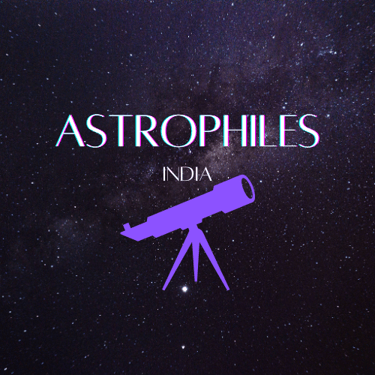A Doorstep to the Wonderland of the Cosmos
Here is a blog from Mr. Suyash Pethe from Maharashtra. Live up his journey of leading a group of 'Astronomical Minds'.
KNOW THE COSMOS
Suyash Pethe
10/4/20246 min read


The universe is a vast and beautiful place, and every time I look up in the sky, I feel a sense of wonder and curiosity. I have always been fascinated by the stars and planets in the night sky. This article shares my journey into astronomy along with a group of my friends, tips for beginners, and the joy of exploring the cosmos.
The Fascination of the Night Sky
From ancient cultures who used stars for navigation to modern scientists studying distant galaxies, the night sky has mesmerized humans for centuries. As a curious boy and my friends in a small town, we would discuss the mysteries of the universe and Sci-fi stuff like time travel, parallel universe, and much more. We used to stare at the stars, thinking of how the universe would be, beyond our planet.
Starting the Journey Together
In late 2019, we had a chance to attend a couple of sky gazing sessions, that was the first time when we got to know about some technical aspects of astronomy as well as some other mysteries of the cosmos. After those sessions, we formed a group of our space enthusiast friends, named “Astronomical Minds”.
During the COVID lockdown times, we utilized the time to observe the night sky, identify the constellation patterns, and enjoy the views of meteor showers. After that, we decided to add a telescope to our journey, special thanks to Mr. Chintamani Pai sir of Space Geeks, who guided us regarding the whole process and initial setup.
Getting Started with Telescope
Initially, it was not easy to handle the equipment and set things up. For beginners, the choice of equipment can be a small telescope or a good pair of binoculars depending upon use and budget. Before having a telescope, we did use binoculars, they’re portable, easy to use, and allow you to see the craters of the Moon and the moons of Jupiter
When you're ready for a telescope, consider a refractor or a reflector. Refractors are great for observing planets and the Moon, while reflectors are better for deep-sky objects like galaxies and nebulae. Start simple and upgrade as you gain experience.
Learning the Basics
As a group, it was very helpful for us to learn the basic terms and concepts. I would suggest every space enthusiast form a group, and if possible, attend some astronomy sessions to get a basic understanding of the subject.
Here are some important terms:
The Moon: Our planet Earth only has one natural satellite which is the moon. The moon appears to be extremely big to us. This is because it is nearer to our planet compared to the other celestial bodies.
Stars: Stars are celestial bodies having their heat and light. In the night sky, most of the twinkling dots are the stars.
Planets: Unlike stars, planets do not twinkle and often appear brighter. They move through the sky against the backdrop of stars.
Artificial Satellites: Man has also placed artificial satellites around the Earth and other planets to study them and for communication purposes.
Asteroids: Several tiny bodies also move around the sun. These bodies are known as the asteroids.
Meteors and meteorites: These are objects from space that enter our atmosphere as they are pulled by the Earth's gravity. Meteors usually are small and burn up in the atmosphere as they enter the earth.
Comets: These are small chunks of ice and rock that come from the outer edge of the solar system. When its orbit brings it closer to the sun, the ice on them vaporizes, creating a beautiful tail behind them.
The Solar System: The sun, eight planets, satellites, stars, and some other celestial bodies known as asteroids and meteoroids form the solar system.
Constellations: Groups of stars that form recognizable patterns. Learning a few constellations can help you navigate the night sky.
Deep-Sky Objects: These include galaxies, nebulae, and star clusters, which require darker skies and sometimes a telescope to observe.
Using Star Charts and Apps
Star charts are helpful tools for identifying stars and constellations. Many online resources and apps can help you find your way in the night sky. These tools often have navigational features that let you point your phone at the sky and identify stars and planets instantly. Some of them are Stellrium and Star Tracker.
Finding the Best Viewing Spots
Light pollution from cities can wash out many celestial objects. To truly enjoy astronomy, find a dark location away from city lights. Local parks, beaches, or even your backyard can be good spots. You can do the work from the terrace if there is less light pollution.
Planning Your Observations
Use mobile applications like Nightshift and YouTube to plan your schedule according to the celestial events. We often plan our sessions around new moon days, as it gets better to observe the sky when there is no moon or lesser moon phase. You can have the best view of the moon to spot the craters and mountains around the full moon, so plan accordingly.
Events to Watch For
Keep an eye out for astronomical events like meteor showers, lunar eclipses, and planetary alignments. Websites and apps dedicated to astronomy often provide schedules for these events, helping you prepare for nights of spectacular views. During our initial days, we arranged a session for our neighbors and friends to watch the great conjunction of Jupiter and Saturn through a telescope in December 2020. Additionally, we have witnessed eclipses through telescopes using filters to avoid harm to our eyes.
Stargazing Nights
Stargazing is more than just looking at stars; it's about connecting with the universe. I remember my first stargazing night with friends. We laid on blankets, sharing stories and pointing out constellations. The excitement of spotting a shooting star or the bright colours of a nebula is unmatched. During our meetups, my friends would always click on some exceptional photos of the night sky.
Joining a community
Connecting with other space lovers can enrich your experience. Many cities have astronomy clubs that organize star parties and events. These gatherings are a great way to learn from others, share equipment, and discover new techniques. Online forums and social media groups also provide a platform to ask questions and share your observations.
Arranging the sessions
Conducting sessions for school students and space enthusiasts having limited ideas about the subject will be a great addition. We have conducted a few sessions, based on our knowledge and observations. Observing the moon, planets as well as deep sky objects, knowing the ancient stories about the constellations, and learning about the vastness of the universe would fascinate the students, and enhance their curiosity about the space and universe.
The Wonders Await
The night sky is full of wonders waiting to be explored. From the craters of the Moon to the swirling arms of distant galaxies, there’s always something new to discover. As passionate space lovers, we find joy in the simplicity of stargazing, yet the complexity of the universe continually inspires us.
Conclusion
Embarking on an astronomical journey doesn’t require advanced knowledge or expensive equipment. With a curious mind and a desire to explore, anyone can enjoy the beauty of the night sky. Remember to take your time, learn the basics, and most importantly, have fun. The universe is vast, and each star you observe brings you closer to understanding the wonders it holds. So, grab your binoculars or telescope, head outside, and let the adventure begin!
I find myself lucky to have a great group of friends, with whom I have not only witnessed some spectacles of the night sky but also spent memorable time, exploring the beauty of our cosmos.
Hey reader, thank you for reading this blog post. If you too want to get featured on our blogs then feel free to submit your writing here.
Suyash Pethe
About The Author:
My name is Suyash Pethe. I am a Pharmacy graduate and astronomy enthusiast. Experienced individual in the Healthcare/Life science industry and currently working as a Medical Records Summarizer. I have written this article on behalf of my group, “Astronomical Minds” from a small town, Devgad of Sindhudurg district, Maharashtra.
Our group was formed in 2020, with 10-12 members. We have conducted a few astronomy sessions for students and space lovers in our locality and nearby schools to introduce them to a basic understanding of the subject.


